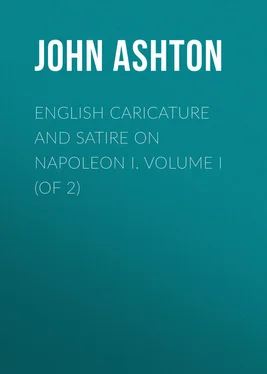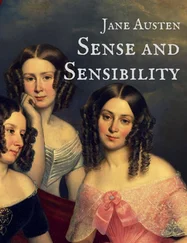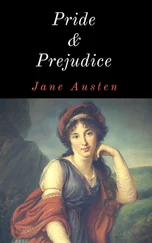John Ashton - English Caricature and Satire on Napoleon I. Volume I (of 2)
Здесь есть возможность читать онлайн «John Ashton - English Caricature and Satire on Napoleon I. Volume I (of 2)» — ознакомительный отрывок электронной книги совершенно бесплатно, а после прочтения отрывка купить полную версию. В некоторых случаях можно слушать аудио, скачать через торрент в формате fb2 и присутствует краткое содержание. Жанр: foreign_antique, foreign_prose, на английском языке. Описание произведения, (предисловие) а так же отзывы посетителей доступны на портале библиотеки ЛибКат.
- Название:English Caricature and Satire on Napoleon I. Volume I (of 2)
- Автор:
- Жанр:
- Год:неизвестен
- ISBN:нет данных
- Рейтинг книги:4 / 5. Голосов: 1
-
Избранное:Добавить в избранное
- Отзывы:
-
Ваша оценка:
- 80
- 1
- 2
- 3
- 4
- 5
English Caricature and Satire on Napoleon I. Volume I (of 2): краткое содержание, описание и аннотация
Предлагаем к чтению аннотацию, описание, краткое содержание или предисловие (зависит от того, что написал сам автор книги «English Caricature and Satire on Napoleon I. Volume I (of 2)»). Если вы не нашли необходимую информацию о книге — напишите в комментариях, мы постараемся отыскать её.
English Caricature and Satire on Napoleon I. Volume I (of 2) — читать онлайн ознакомительный отрывок
Ниже представлен текст книги, разбитый по страницам. Система сохранения места последней прочитанной страницы, позволяет с удобством читать онлайн бесплатно книгу «English Caricature and Satire on Napoleon I. Volume I (of 2)», без необходимости каждый раз заново искать на чём Вы остановились. Поставьте закладку, и сможете в любой момент перейти на страницу, на которой закончили чтение.
Интервал:
Закладка:
All our English squibs repeat the tale, and the subjoined is certainly the cleverest of them. 18 18 The Life of Napoleon, a Hudibrastic Poem in Fifteen Cantos, by Doctor Syntax (William Combe). London, 1815.
About his parentage indeed,
Biographers have disagreed;
Some say his father was a farmer,
His mother, too, a Cyprian charmer:
That his dad Carlo was quite poor,
Letitia a French General’s – ;
If, faithless to her marriage vows,
She made a cuckold of her spouse,
Then Nap (some characters are rotten)
Has been a merrily begotten .
But other writers, with civility,
Insist he’s sprung from old Nobility ,
And therefore to his father’s name
Attach the highest rank and fame:
Nay, furthermore, they add as true,
Nap was Paoli’s godson too.
But what to this said great Paoli?
‘I stood for one, but ’pon my soul, I
At present do not rightly know
Whether it was for Nap or Joe.’
It was for Joe, if he’d have said it,
But Joe has done him little credit.
Now let the honest muse despise
All adulation, barefaced lies,
And own the truth – Then Boney’s father
Was member of the law, or rather,
A pettifogger, which his friends,
To serve their own politic ends,
Would keep a secret, knowing well
That pettifoggers go to Hell.
When France occasioned some alarms,
And Corsica was up in arms,
This Carlo Bonaparte thought fit,
His parchments for the sword to quit.
He fought, they say, with some applause,
Tho’ unsuccessful in the cause:
Meanwhile, with battle’s din and fright,
His wife was in a dismal plight;
From town to town Letitia fled,
To shun the French, as it is said ;
Tho’ others whisper that the fair
Was under a French Gen’ral’s care,
And that to keep secure her charms
She fondly trusted to his arms .
Be this however as it might,
After incessant fear and flight,
Letitia (’fore her time, mayhap)
Was brought to bed of Master Nap:
The Cause, we think, of his ambition,
And of his restless disposition.
The Bonaparte family was not rich, their sole means of living being from the father’s professional exertions, and the family was very large, and many mouths to feed; in fact, they were in somewhat straitened circumstances, but not in such squalid poverty as Gillray depicts them, in the accompanying illustration, where our hero may be seen, with his brothers and sisters, gnawing the bony part of a shin of beef.
Madame Junot 19 19 Memoirs , vol. i. p. 10.
says, ‘Saveria told me that Napoleon was never a pretty boy, as Joseph had been; his head always appeared too large for his body, a defect common to the Bonaparte family. When Napoleon grew up, the peculiar charm of his countenance lay in his eye, especially in the mild expression it assumed in his moments of kindness. His anger, to be sure, was frightful, and though I am no coward, I never could look at him in his fits of rage without shuddering. Though his smile was captivating, yet the expression of his mouth when disdainful, or angry, could scarcely be seen without terror. But that forehead which seemed formed to bear the crowns of a whole world; those hands, of which the most coquettish woman might have been vain, and whose white skin covered muscles of iron; in short, of all that personal beauty which distinguished Napoleon as a young man, no traces were discernible in the boy.’
Napoleon said of himself: ‘I was an obstinate and inquisitive child. I was extremely headstrong; nothing overawed me, nothing disconcerted me. I made myself formidable to the whole family. My brother Joseph was the one with whom I was oftenest embroiled; he was bitten, beaten, abused: I went to complain before he had time to recover his confusion.’
At ten years of age, through the medium of his patron, Count Marbœuf, he was sent to the military school at Brienne, which he entered on April 23, 1779. Here he was shy and reserved, and not at all liked by his schoolfellows, who twitted him with his poverty, the country whence he came, his name, and made reflections on his mother; the last particularly exasperating him. His veracious Hudibrastic historian says: —
When he two years at school had been,
He proved more violent and mean:
Unlike his sprightly fellow boys,
Amused with playthings and with toys;
At shuttlecock he’d never stop,
Nor deign to whip the bounding top.
His garden was his sole delight,
Which ne’er improv’d his mental sight;
But thus in childhood serv’d to show
He was to all mankind a foe.
His schoolfellows, in keen sedateness,
He robb’d to prove his urchin greatness:
Deluded by his wheedling art,
Some cheerfully resign’d a part
Of their possessions, and to these }
He added what he chose to seize; }
Then, planting it with num’rous trees }
And putting palisades all round,
He strutted monarch of the ground;
’Twas on a welcome festive morn,
For some great saint divinely born.
No matter why, it was a jolly day,
Boys must be merry on a holiday;
And now behold their bulging pockets,
Enrich’d with pistols, squibs, and rockets —
When some, but humbly begg’d his pardon
Threw fireworks into Boney’s garden;
’Twas chiefly manag’d by the breeze
Which sent them ’mong his plants and trees;
Bursting, the cracks were oft repeated,
Nap’s ears were with the thunder greeted;
Th’ explosions discomposed, I wot,
Th’ arrangement of the lovely spot.
Nap saw it with corroding spite,
And now began his lips to bite;
But strove his anger to restrain,
Until revenge he could obtain.
For weeks he plann’d what he should do,
And in about a month or two
Contrived his infamous design,
By having made a kind of mine
Beside the garden; where, in haste,
Long trains of gunpowder he plac’d;
Deliberately now, as stated,
He for the little fellows waited;
And just as they were passing through it,
A lighted bit of stick put to it;
The boys were suddenly alarm’d,
And some were miserably harm’d,
While all, with fright and consternation,
Were in a state of perturbation.
Th’ heroic Boney, with a club,
Now came the sufferers to drub;
But soon the master was in sight,
Which put the Conqueror to flight.
CHAPTER IV
On October 14 or 17, 1784, he left Brienne for the Ecole Militaire at Paris.
Gillray, when he drew the picture (on next page) of the abject, ragged, servile-looking Napoleon, could hardly have realised the fact that Napoleon was then over fifteen years of age, and that, having been already five years at a military school, he must necessarily have carried himself in a more soldierly manner. He stayed at the Ecole Militaire till August 1875, when he obtained his brevet of second lieutenant of Artillery in the regiment of La Fère. Madame Junot 20 20 Memoirs , vol. i. p. 33.
tells an amusing anecdote of him at this period, which I must be pardoned introducing here, as it helps us to imagine his personal appearance. ‘I well recollect that on the day when he first put on his uniform, he was as vain as young men usually are on such an occasion. There was one part of his dress which had a very droll appearance – that was his boots. They were so high and wide, that his little thin legs seemed buried in their amplitude. Young people are always ready to observe anything ridiculous; and, as soon as my sister and I saw Napoleon enter the drawing-room, we burst into a loud fit of laughter. At that early age, as well as in after life, Bonaparte could not relish a joke; and when he found himself the object of merriment, he grew angry.
Интервал:
Закладка:
Похожие книги на «English Caricature and Satire on Napoleon I. Volume I (of 2)»
Представляем Вашему вниманию похожие книги на «English Caricature and Satire on Napoleon I. Volume I (of 2)» списком для выбора. Мы отобрали схожую по названию и смыслу литературу в надежде предоставить читателям больше вариантов отыскать новые, интересные, ещё непрочитанные произведения.
Обсуждение, отзывы о книге «English Caricature and Satire on Napoleon I. Volume I (of 2)» и просто собственные мнения читателей. Оставьте ваши комментарии, напишите, что Вы думаете о произведении, его смысле или главных героях. Укажите что конкретно понравилось, а что нет, и почему Вы так считаете.












